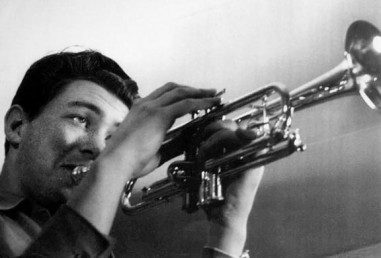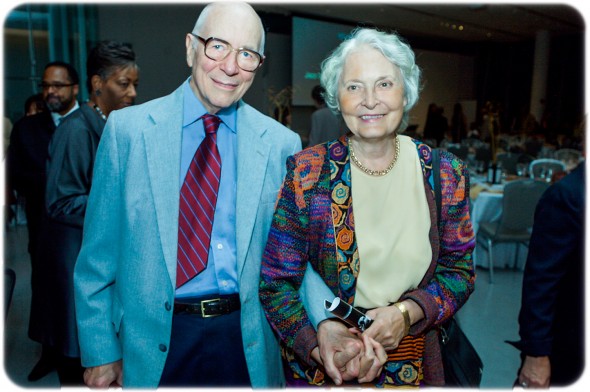Deaths: Richard Wang
Richard Wang, 88, associate professor emeritus of music and a leader in the jazz community, died Oct. 10 in Chicago.
During his 29 years at the university, Wang was the resident jazz scholar, historian, and authority on all things jazz at UIC.
An advocate for the genre, he was a co-founder, past president and longtime board member of the Jazz Institute, and part of the programming committee for the first Chicago Jazz Festival. He was also a founding member of Chicago’s Friends of Duke Ellington Society, which celebrates the life, music and legacy of the jazz legend.
 Wang’s work to reconstruct the musical comedy “Jump for Joy” received prominent mention and wide coverage by Newsweek and U.S. News & World Report after it was performed by the Pegasus Players.
Wang’s work to reconstruct the musical comedy “Jump for Joy” received prominent mention and wide coverage by Newsweek and U.S. News & World Report after it was performed by the Pegasus Players.
He helped develop the University of Chicago’s Jazz Archive in 1976, preserving materials pertaining to the birth and early growth of Chicago Jazz. Wang’s scholarship was also recognized by research grants from the National Endowment for the Humanities and the Illinois Arts Council, and his articles appeared in the Black Music Research Journal, Musical Quarterly, Jazz Educators Journal and the New Grove Dictionary of Jazz.
“UIC is fortunate to have had such an eminent and influential scholar and musician as a faculty member,” said Astrida Orle Tantillo, dean of the College of Liberal Arts and Sciences. “We are proud to be associated with his work and legacy.”
Wang began his journey into the musical world early on in his life, playing trumpet professionally at events in his school and around the South Side of Chicago by the time he was 15 years old. He also frequented now-legendary clubs and theatres where jazz flourished in the 1930s and 40s.
After high school, Wang served in the armed forces. When he returned, he attended and graduated from the Chicago Musical College, a division of the Chicago College of Performing Arts at Roosevelt University, and completed a master’s degree in music theory.
His first teaching job was at Wilson Junior College, later renamed Kennedy-King College, where he created breakthrough ensembles.
“He was very generous with his time and his talents, and quite a dedicated scholar and artist,” said Gene Collerd, professor emeritus of music at UIC.
At the college, he taught students like Roscoe Mitchell, Henry Threadgill, Joseph Jarman, Malachi Favors and others — the pioneers of the Association for the Advancement of Creative Musicians (AACM), a Chicago-based group that supports the creation of original music. Wang is recognized for some of the group’s early history in A Power Stronger Than Itself: The AACM and American Experimental Music.
At the college, he also met Vanya Jankovich, his wife. They married in 1960.
In 1973, Wang started his career at UIC, teaching courses in jazz, orchestration and music literature and analysis. He assumed directorship of the UIC Jazz Ensemble three years later, introducing students to a range of styles, works and composition theories while holding performers to a high, professional standard during rehearsals.
“He very quickly brought the Jazz Ensemble from something that was rather ad hoc to something that was run at a professional level and able to play much more demanding repertoire,” Collerd said.
Eventually it became, as Collerd described, a first-rate ensemble that laid the groundwork for the current Bachelor of Music in jazz studies.
Wang also taught at the Chicago Teacher’s College, now Chicago State University, and the University of Chicago.
The Jazz Institute’s Kiewit-Wang Mentorship Award, an award given to high school students who demonstrate excellence in jazz musicianship, spotlights a tradition that Wang was proud of: shaping the next generation of musicians.
“Professor Wang’s influence on the future was unparalleled,” said Michael Anderson, head of the department of music. “He touched the lives of so many young people.”
Wang is survived by his wife, Vanya Wang; sister Jean Zimmerman; son Eric Vaang; daughter-in-law Tammy Polonsky; grandsons; a nephew and a niece.
Donations in Wang’s honor can be sent to the Jazz Institute of Chicago, 410 S. Michigan Ave, Suite 500, Chicago, IL 60605, or online.

